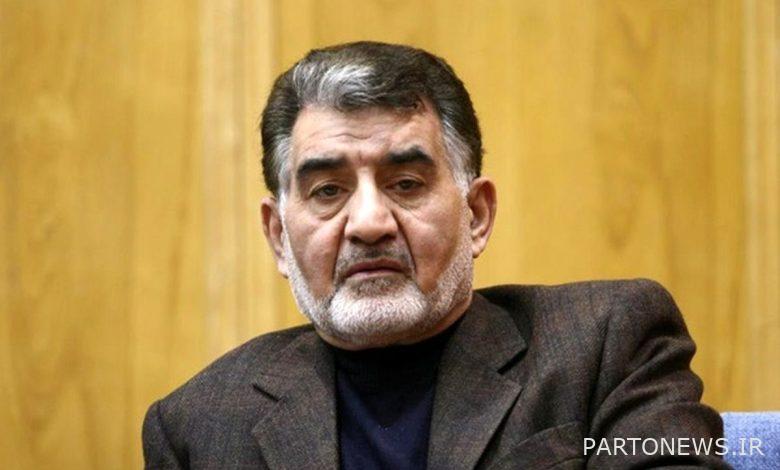Iraqis no longer buy Iranian cars

Regarding the recent visit of the Iranian trade delegation to Iraq, Yahya Al-Ishaq said: “Considering the situation that arose in Iraq with the parliamentary and presidential elections, it seems that Iran’s economic relations with Iraq in This new situation will take on a new form. So we needed to know what our future situation would be like. In this regard, two trade delegations were sent, one to southern Iraq and the other to the Kurdistan region. The delegation that went to southern Iraq included the chairman of the Iraqi Chamber of Commerce, the chairman of the parliament’s economic commission, a number of parliamentarians, the heads of the Iran-Iraq border chambers, and myself as chairman of the Iran-Iraq Joint Chamber of Commerce.
He added: “In this delegation, we had meetings with the Iraqi Minister of Commerce, the Iraqi Investment Board, the Iraqi industry and economic activists in Baghdad nationally and in the provinces of Karbala and Najaf with the heads of the chambers of commerce.” The final result was that in the first step, an agreement was reached between the two countries’ chambers on economic claims, so that a joint jury could resolve the claims before going to court. The nature of the arbitral tribunal is that while it has the approval of the judiciary of the two countries, it does not need a court or complaint process, but is ruled by an arbitral tribunal consisting of the Iran Chamber and the Iraqi Chamber, which is usually more efficient than the court in economic matters. Is. It is the same everywhere in the world.
Al-Ishaq added: “As for future relations, what is certain is that Iraqi decision-makers are looking to boost the Iraqi industrial sector and develop their own industrial units, which can be invested in Iraq, instead of just importing goods.” Iran-Iraq joint venture in this country or Iran as well as in border industrial towns. However, they are interested in becoming producers instead of importers, or even being able to co-produce and export. We are also interested in this goal.
Emphasizing the importance of bilateral imports and exports between Iran and Iraq, he continued: “We have exports equivalent to 8 to 12 billion dollars to Iraq, but Iran’s imports from this country are in the range of several million dollars.” The difference between exports and imports shakes stability to some extent. We are also interested in investing in Iraq. They are interested in Iran’s industry and production lines, so the orientation is that while continuing to trade, we can also have investments in the field of industry in this country. In this regard, private sector units also held talks with each other.
The head of the Iran-Iraq Joint Chamber of Commerce also spoke about the outcome of the trade delegation’s visit to the Kurdistan Region: About 60 economic activists traveled to the Kurdistan Region in the presence of the Kurdistan official and the Secretary General of the Iran-Iraq Joint Chamber of Commerce. The authorities were there. Negotiations have been held on export development, cooperation in areas such as chain stores, the presence of economic actors in the region’s distribution system, as well as technical and engineering areas and climate projects.
He added: “There were no talks about exporting cars to this country.” It was a joint company between Iran and Iraq that took parts to this country, produced them and we also exported them. Of course, there is a lot of capacity for exports, even in cases like taxis. It is possible to develop relations in this area, but there must be a joint production in Iraq or on the border, because they want to be gradually involved in production.
Al-Ishaq noted: “The more secure Iraq becomes, the more rivals there will be.” Therefore, I suggest manufacturers, especially manufacturers of industrial machinery and industrial investment, to use this market. The ground is being prepared, and we will also be negotiating the basics of the insurance system and guaranteeing that economic actors in various fields will have better guarantees. Negotiations on customs, standards, money transfers, visas, etc. have also taken place.
In response to a question about the recent remarks of MP Mustafa Mirsalim about the dissatisfaction of Iraqis with Iranian cars, he noted: “There is dissatisfaction with Iranian-made cars in Iran itself and there is no need for Iraq.” The Behbahan accident shows that our cars are not in a good condition in terms of quality. Minister Samat, who was a supporter of car manufacturers, announced that the worst conditions prevail in terms of price and quality in the car industry. Not only in airbags but also in different parts, the necessary measures have not been taken and there are many dangers in this regard.
He added: In the Iraqi market or anywhere else, people need quality, reasonable prices and after-sales service to buy, especially for time-honored goods. If our automakers do not change, people will suffer to some extent, both at home and abroad. With these high prices, the very low quality and the disgrace that we have to stand in the long lines, we have to have a new plan and strategy for the car, there is no doubt that we will lose the Iraqi market in the case of the car.
Source:
ایلنا
.

